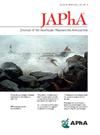Knowledge of immunosuppressants and transplant patient management in community pharmacy
IF 2.5
4区 医学
Q3 PHARMACOLOGY & PHARMACY
Journal of the American Pharmacists Association
Pub Date : 2025-07-21
DOI:10.1016/j.japh.2025.102484
引用次数: 0
Abstract
Background
Immunosuppressive therapies are essential for transplant recipients and are increasingly prescribed in autoimmune and oncologic conditions. In France, community pharmacists are legally involved in therapeutic patient education (TPE) and medication counseling. However, their level of knowledge regarding immunosuppressive therapies remains poorly documented.
Objectives
This study aimed to assess the knowledge of French pharmacy professionals—pharmacists, pharmacy technicians, and pharmacy students—regarding Immunosuppressive therapies, particularly in the context of transplant patient management. It also sought to identify gaps in counseling practices and educational needs.
Methods
A cross-sectional survey was conducted from April 2022 to March 2023 using a 20-item online questionnaire. The survey was distributed nationally to community pharmacy professionals. Questions covered immunosuppressive therapy, patient education, lifestyle risks, and infectious precautions. Responses were weighted based on clinical importance, and group comparisons were performed using nonparametric statistical tests.
Results
A total of 265 participants completed the survey (177 pharmacists, 50 students, 38 technicians). Pharmacists scored significantly higher than technicians (11.76 ± 6.2 vs. 8.00 ± 6.5; P = 0.004). Students showed intermediate scores with greater variability. Major knowledge gaps were observed regarding missed doses, food interactions, rejection signs, and self-medication risks. Only 22.6% identified self-medication as unsafe for transplant patients. Lifestyle and travel counseling practices were inconsistent across groups. TPE training was reported by 51.4% of pharmacists, 28% of students, and 5.3% of technicians.
Conclusion
The study revealed heterogeneous knowledge and counseling practices among pharmacy professionals regarding immunosuppressive therapies. These findings highlight the need for targeted education, integration of immunosuppressive topics into pharmacy curricula, and enhanced collaboration between hospital and community pharmacists to support safe and effective long-term care for immunosuppressed patients.
社区药房免疫抑制剂及移植患者管理知识。
背景:免疫抑制治疗对移植受者来说是必不可少的,并且越来越多地用于自身免疫和肿瘤疾病。在法国,社区药剂师合法参与治疗患者教育(TPE)和药物咨询。然而,他们对免疫抑制疗法的知识水平仍然缺乏记录。目的:本研究旨在评估法国药学专业人员(药剂师、药学技术人员和药学专业学生)关于免疫抑制疗法的知识,特别是在移植患者管理方面的知识。它还试图找出咨询实践和教育需求方面的差距。方法:于2022年4月至2023年3月进行横断面调查,采用20项在线问卷。该调查在全国范围内分发给社区药房专业人员。问题包括免疫抑制治疗、患者教育、生活方式风险和感染预防。根据临床重要性对应答进行加权,并采用非参数统计检验进行组间比较。结果:共265人完成调查,其中药师177人,学生50人,技术人员38人。药师得分明显高于技师(11.76±6.2比8.00±6.5);P = 0.004)。学生表现出中等水平的成绩,差异更大。在遗漏剂量、食物相互作用、排斥症状和自我用药风险方面,观察到主要的知识空白。只有22.6%的人认为自我用药对移植患者不安全。不同群体的生活方式和旅行咨询实践不一致。51.4%的药剂师、28%的学生和5.3%的技术人员接受过TPE培训。结论:本研究揭示了药学专业人员对免疫抑制治疗的认知和咨询实践的异质性。这些发现强调了有针对性的教育,将免疫抑制主题纳入药学课程,以及加强医院和社区药剂师之间的合作,以支持免疫抑制患者安全有效的长期护理的必要性。
本文章由计算机程序翻译,如有差异,请以英文原文为准。
求助全文
约1分钟内获得全文
求助全文
来源期刊
CiteScore
3.30
自引率
14.30%
发文量
336
审稿时长
46 days
期刊介绍:
The Journal of the American Pharmacists Association is the official peer-reviewed journal of the American Pharmacists Association (APhA), providing information on pharmaceutical care, drug therapy, diseases and other health issues, trends in pharmacy practice and therapeutics, informed opinion, and original research. JAPhA publishes original research, reviews, experiences, and opinion articles that link science to contemporary pharmacy practice to improve patient care.

 求助内容:
求助内容: 应助结果提醒方式:
应助结果提醒方式:


